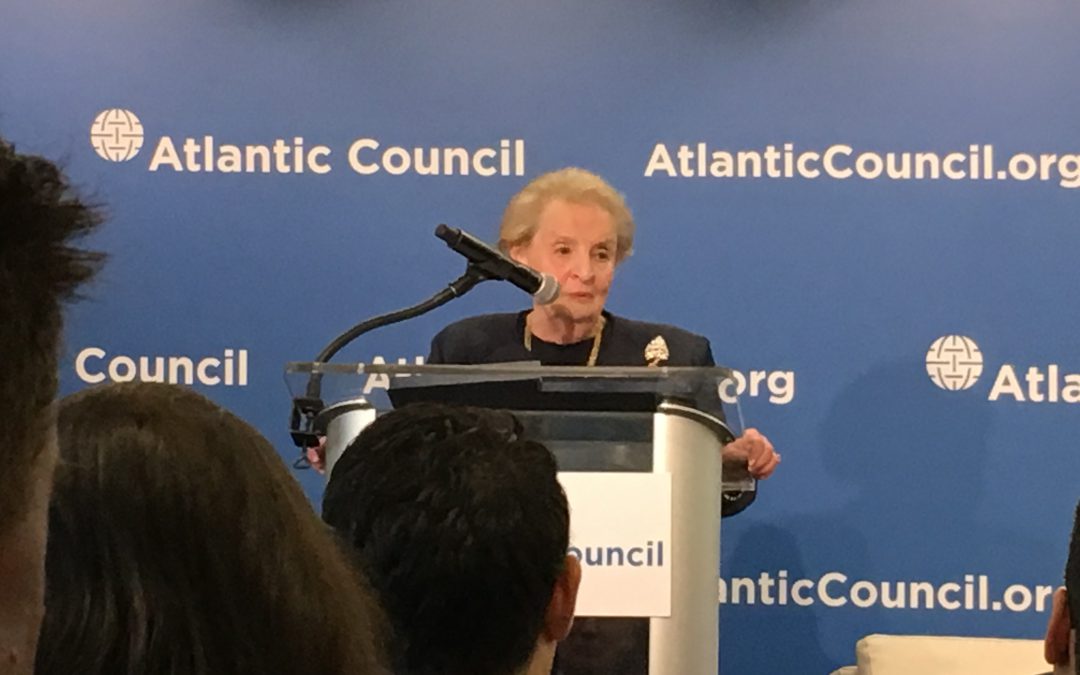WASHINGTON – Former Clinton administration Secretary of State Madeleine Albright and former Bush administration National Security Advisor Stephen Hadley called for a new approach to the Middle East Wednesday – taking the lead from the countries and providing the support needed to allow them to stabilize the region rather than dictating their policies.
The approach, outlined in a report they authored for international affairs think tank The Atlantic Council, proposes Middle Eastern countries empower their citizens to stabilize the region while the United States and other outsiders intervene only as helping hands.
“What is new is the fact that we have recognized … this cannot be ordered from the outside, that this really is dependent on local initiatives and supporting those initiatives,” Albright said at an event to release the report. “…We, all of us from the West, have patronized the Middle East. It is time to stop talking about it in that particular way.”
The approach is two-pronged. First, the United States and other countries must cooperate with Middle Eastern countries to achieve peace and security, such as strengthening opposition forces in Syria and helping to go after ISIS and al-Qaida.
The second prong focuses on developing human capital in the Middle East by providing incentives to implement educational, trade, and government reforms.
Albright acknowledged that the strategy would not produce results quickly, but said it was not “overly optimistic or unrealistic.”
She said governments like Tunisia, Jordan, the United Arab Emirates and Saudi Arabia are moving in a more positive direction, with many youth and women becoming educated, starting businesses and becoming community leaders.
“There is something to work with,” she said. “There are green shoots of progress that need our support.”
Hadley added that the Middle East and the United States share interests, including defeating ISIS, ending civil wars and stimulating economic growth.
“Even the people in the most sectarian countries like Syria and Iraq say the number one problem is the lack of inclusive governance in which all participate,” he said. “That’s very much consistent with American principles of how you build an inclusive and sustainable social order.”
Part of the strategy includes empowering Middle Easterners in the United States.
“It is hugely in the interest of the United States to be investing in these (Middle Eastern) youth and have these youth come over, participate in our society, be educated, and ultimately go home,” Hadley said, “because they will be agents of change who will ultimately bring the stability that is in our interest to have emerge in the Middle East.”
Hadley said the proposed strategy was “not inconsistent with what President-elect (Donald) Trump has said about the Middle East. It prioritizes destroying Daesh and al-Qaida, as he has. It does not require a massive military intervention with large numbers of ground forces.”


